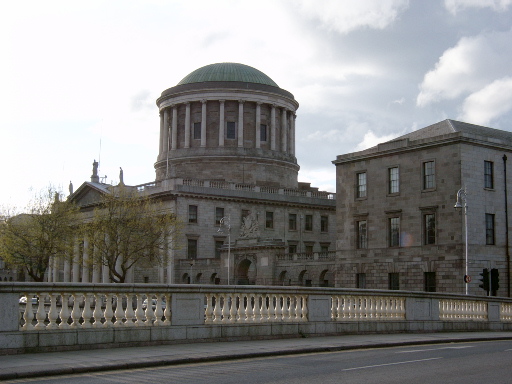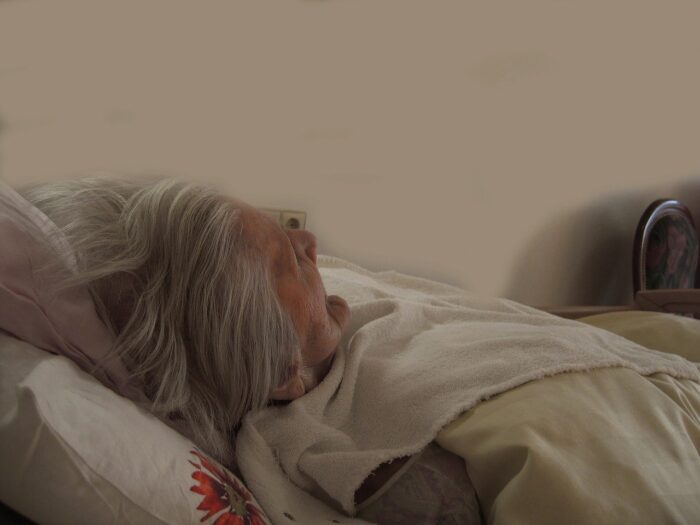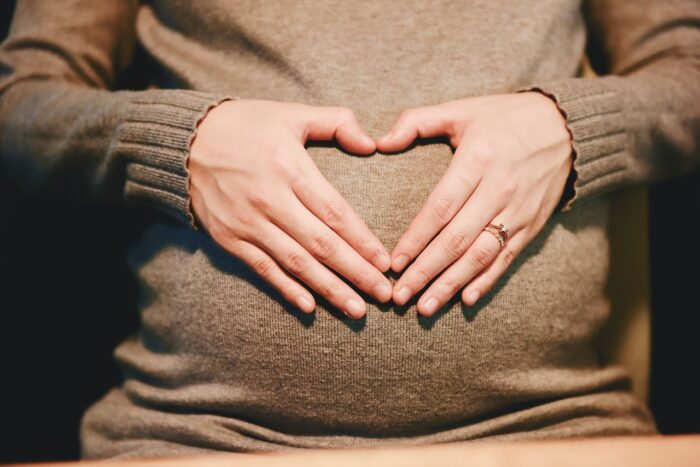
The High Court has ruled that payments to an egg donor, a surrogate and a surrogate matching agency, plus a deliberate breach of the natural ties, were no barrier to having children placed on the Register of International Adoptions.
The case arose after the Adoption Authority of Ireland opposed an application involving a US-based couple, including a man from Northern Ireland, to register the children. The authority had concerns that their payments — including $11,300 (€10,300) for an agency, $7,000 for an egg donor and fees for their surrogate — might breach an Irish ban on paying parents whose children are adopted. Many countries in Europe ban commercial surrogacy on the grounds it commodifies children.
However, the Irish man, known as Mr D in the case, disputed the adoption authority’s characterisation of the arrangement as a “commercial surrogacy” and said it was “compensatory”.
The attorney-general, a notice party in the case, submitted that the court could distinguish between surrogacy arrangements involving fees permitted in America and the later American adoption.
The authority raised concerns about whether the adoption could be registered without reference to the children’s birth and genetic mothers.
Approving the application, Judge Max Barrett said the men did everything “by the book”. As the twins were deeply loved and well cared for, the idea that the court would not recognise the adoptions by reference to the “best interests” of these children “does not hold water”.

The Austrian parliament has voted to legalise assisted suicide from January after a court ruling said its ban ‘breached’ fundamental human rights.
The ban would have expired at the end of this year anyway, and the new legislation means it can only take place in accordance with designated criteria.
The Assisted Suicide Act gives the option of an advance directive — similar to a living will — to adults who are terminally ill or suffer from a permanent, debilitating condition, meaning they need not be terminally ill.
Each case is to be assessed by two doctors, one of whom would have to be an expert in palliative medicine. As part of their duties, they must determine whether a patient is opting for euthanasia independently.
At least 12 weeks must pass before a patient is granted access to the procedure, to ensure that euthanasia is not being sought due to a temporary crisis. However, for patients in the “terminal phase” of an illness, the period can be shortened to two weeks.

The College of Psychiatrists has warned against assisted suicide legislation, saying it is not compatible with good medical care and its introduction could place vulnerable patients at risk.
With a special Oireachtas committee due to examine the ‘Dying with Dignity’ Bill (2020) in the new year, the College of Psychiatrists has published a position paper on physician assisted suicide and euthanasia (PAS-E).
It says allowing the practice could have “unintended consequences” and would go against traditional Irish Medical Council ethics guidelines.
Even when safeguards are introduced to ensure that the choice for induced death is made with clear knowledge and full consent, intentions regarding induced death can often fluctuate over short periods.
It also warned that the drugs used to kill the patient can themselves result in considerable and protracted suffering.
The position paper also says doctors should not be “coerced” to act against their values adding: “Physician-assisted suicide and euthanasia are contrary to the efforts of psychiatrists, other mental health staff and the public to prevent deaths by suicide.”
The report considers ethical issues surrounding assisted dying and says grounding it in legislation could itself prove problematic.

Church leaders in Uruguay and Argentina have released strong statements opposing assisted suicide in response to moves to allow the procedure.
Cardenal Daniel Sturla, archbishop of Montevideo, Uruguay, spoke about the matter in his Christmas message, supporting “the defense of life from conception to natural death,” and rejected any “action that searches for death.” The message comes as the Uruguayan parliament debate issues related to palliative care and euthanasia.
In neighboring Argentina, a project to legalise euthanasia called “Good Death” was presented by three legislators last November.
Argentina’s Council for Religious Freedom released a statement criticizing the project.
“Though recognizing that there are differences among us, there’s ample consensus among religious confessions about the eminent dignity of all human beings, healthy or sick, and of the duty to respect, honor and care for life, as [religions] generally value as a fight from God,” the council said.
The statement also describes the project of “Good Death” as the “facilitation of assisted suicide and the elimination of patients with chronic deceases, including children and people with restricted capacities.”

The Quebec government will impose vaccine-pass requirements on those wishing to attend mass and other religious services as part of new public health measures to counter the Omicron variant.
From today, places of worship will reduce capacity by 50 per cent, with a cap of 250 people. Vaccine passports will be required and people must be seated.
Funerals and weddings can have up to 25 people without requiring vaccine passports, but up to 250 people with passports.
Since October, dioceses in other Canadian states, such as Newfoundland, already instituted a vaccine-pass requirement for attending mass in response to Government rules.

A Christian school in India has been attacked by over 300 Hindu nationalists.
St Joseph’s School in Madhya Pradesh State was targeted earlier this month after false allegations that the school was involved in religious conversions.
The charity CSW says many of the high school students were left traumatised by the attack which happened while they were sitting exams.
Students at the school were taking their Class XII examinations (ages 16 to 18) when members of right-wing Hindu groups, including Vishwa Hindu Parishad and Bajrang Dal, started throwing stones at the glass window at the entrance of the school and shouting slogans such as “Jai Shri Ram” (a Hindu chant meaning “Hail Lord Ram”). During the attack, the mob threw rocks at the windows, prised the doors open with iron bars, and stormed the building.
The manager of the school, Anthony Pynumkal, claimed that he had received information about the planned attack the previous day and had requested police protection, but the police failed to arrive until after the mob had dispersed.
Mr Pynumkal also said that the police have downplayed the seriousness of the damages.

The UK Supreme Court has backed the Government’s decision to not allow gender-neutral passports.
Earlier this year, justices heard an appeal from campaigner Christie Elan-Cane who says that the UK’s passport application process, which requires individuals to indicate whether they are male or female, breaches human rights laws.
Last year, the Court of Appeal ruled it was ‘beyond argument’ that Elan-Cane’s right to respect for private life under Article 8 of the European Convention on Human Rights was engaged, but that the current policy did not amount to an unlawful breach.
In a judgment today, the Supreme Court unanimously agreed, and dismissed Elan-Cane’s appeal.
Giving the ruling, Lord Reed said: ‘The form is concerned with the applicants’ gender as a biographical detail which can be used to confirm their identity by checking it against the birth, adoption or gender recognition certificates provided and other official records.
‘It is therefore the gender recognised for legal purposes and recorded in those documents which is relevant.’
The President of the Supreme Court found that Elan-Cane’s interest in being issued with an ‘X’ passport was ‘outweighed’ by other considerations, including ‘maintaining a coherent approach across government’ as to what genders are recognised.

The Dail has rejected a bill that would require doctors to give pain relief to foetuses in case of late-term abortions. However, Minister for Health Stephen Donnelly has said issues like this can be raised within the review looking at how abortion legislation is operating in the State.
The Health (Regulation of Termination of Pregnancy) (Foetal Pain Relief) Bill 2021 was sponsored by Carol Nolan, Peadar Tóibín, Peter Fitzpatrick, Noel Grealish, Éamon Ó Cuív, Seán Canney, Michael Collins, Richard O’Donoghue, Danny Healy-Rae, Michael Healy-Rae and Mattie McGrath.
The Dáil rejected a second reading of the Bill on Wednesday evening, and a Government counter motion was passed by 107 votes to 36.
Mr Donnelly said medical colleges are working on reviewing clinical guidance documents and, where necessary, they will be updating them “according to the latest evidence and international best practice in the area”.

The vast majority of 20yr olds report having had sexual intercourse, even though just over half are currently in a romantic relationship, according to an ESRI study.
The survey of more than 5,000 20-year-olds and their parents, carried out by the Economic and Social Research Institute, offers an insight into the lives of young people in Ireland.
The findings, based on the long-term Growing Up In Ireland study, show just over half (57%) of 20-year-olds were in a romantic relationship of some kind at the time of the survey, but most (84%) of the young adults had had sexual intercourse, with just over half becoming sexually active between the ages of 17/18 and 20.
While most (85%) answered that a condom would be the most effective method of preventing STDs, just a third of sexually active 20-year-olds used condoms on every occasion of sexual intercourse.
Over half of all 20-year-olds said they typically spent over three hours online per day, with over 20% usually spending five hours or more online. Over 90% of all 20-year-olds used the internet for social media, watching video content, searching for information, and messaging and calling people.
Outside of these core internet activities, there were marked gender differences in some categories of online activity, with young men more likely to use it for gaming or pornography (64% versus 13% women).
Considering behaviours used to manage their online presence, over a quarter (26%) had posted information they later regretted.

Christian leaders in the Holy Land have asked for “an urgent dialogue” with Israeli, Palestinian and Jordanian leaders “to ensure that no citizen or institution has to live under threat of violence or intimidation.”
They also want to discuss creation of a special Christian cultural and heritage zone in Jerusalem’s Old City to preserve Christian sites. This comes in response to the activities of some extreme Israeli nationalist groups in the city.
“Since 2012, there have been countless incidents of physical and verbal assaults against priests and other clergy, attacks on Christian churches, with holy sites regularly vandalized and desecrated, and ongoing intimidation of local Christians who simply seek to worship freely and go about their daily lives,” the leaders said. “These tactics are being used by such radical groups in a systematic attempt to drive the Christian community out of Jerusalem and other parts of the Holy Land.”
The patriarchs and heads of churches acknowledged the Israeli government was committed to preserving the Christian community “as an integral part of the tapestry of the local community.”
“It is therefore a matter of grave concern when this national commitment is betrayed by the failure of local politicians, officials and law enforcement agencies to curb the activities of radical groups who regularly intimidate local Christians, assault priests and clergy, and desecrate Holy Sites and church properties,” their statement said.
They noted that the Jewish Quarter in Jerusalem’s Old City already was protected in Israeli law, but “radical groups continue to acquire strategic property in the Christian Quarter, with the aim of diminishing the Christian presence, often using underhanded dealings and intimidation tactics to evict residents from their homes, dramatically decreasing the Christian presence, and further disrupting the historic pilgrim routes between Bethlehem and Jerusalem.”